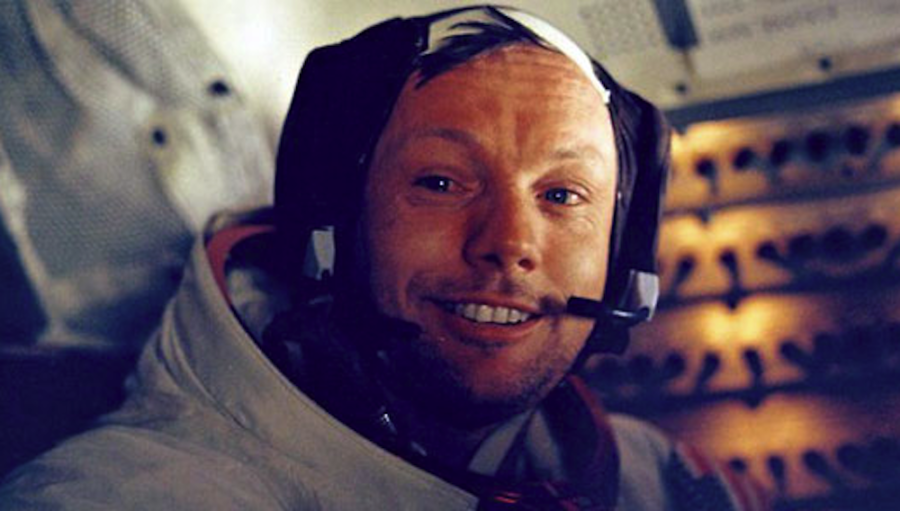Neil Armstrong, Iconic Astronaut, Dies At 82
An American hero, dead at the age of 82.

Neil Armstrong, the first man to walk on the moon, died on August 25, 2012 at the age of 82. His family broke the news that the astronaut, who had undergone heart bypass surgery earlier this month, passed away.
According to his family, Neil Armstrong died from post-surgery complications.
At the time, the Armstrong family released an official statement:
We are heartbroken to share the news that Neil Armstrong has passed away following complications resulting from cardiovascular procedures.
Neil was our loving husband, father, grandfather, brother and friend.
Neil Armstrong was also a reluctant American hero who always believed he was just doing his job. He served his Nation proudly, as a navy fighter pilot, test pilot, and astronaut. He also found success back home in his native Ohio in business and academia, and became a community leader in Cincinnati.
He remained an advocate of aviation and exploration throughout his life and never lost his boyhood wonder of these pursuits.
As much as Neil cherished his privacy, he always appreciated the expressions of good will from people around the world and from all walks of life.
While we mourn the loss of a very good man, we also celebrate his remarkable life and hope that it serves as an example to young people around the world to work hard to make their dreams come true, to be willing to explore and push the limits, and to selflessly serve a cause greater than themselves.
For those who may ask what they can do to honor Neil, we have a simple request. Honor his example of service, accomplishment and modesty, and the next time you walk outside on a clear night and see the moon smiling down at you, think of Neil Armstrong and give him a wink.
Neil Armstrong was the commander of the Apollo 11 mission that touched down on the moon on July 20, 1969. An estimated 500 million viewers watched the momentous and historic occasion from here on Earth. He, along with Edwin “Buzz” Aldrin and Michael Collins manually piloted the Lunar Module Eagle on to the moon.
Neil Armstrong stepped down onto lunar soil and said the words that have become some of the most unforgettable in all of human history: “That’s one small step for man, one giant leap for mankind.”
In the history of mankind, these are some of the most iconic and recognizable words ever spoken. It was the true pinnacle of human exploration at the time.
Neil Armstrong flew for the Navy during the Korean War, and eventually went on to become one of NASA’s very first astronauts, also serving as command pilot for the Gemini 8 mission. After the Apollo 11 mission, Armstrong went on to teach at the University of Cincinnati.
After retiring, Neil Armstrong enjoyed a private life though along the way he was awarded with Armstrong was honored with numerous recognitions, including the Presidential Medal of Freedom, the Congressional Space Medal of Honor, and the Congressional Gold Medal.
Neil Armstrong was a true symbol of the human race’s push into space, exploring the true final frontier. Taking those first steps and uttering those iconic words has become a touchstone for everything space exploration represents.
He will truly be missed.













Leave a comment
You must log in to post a comment